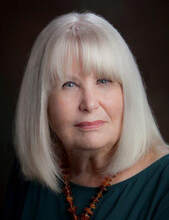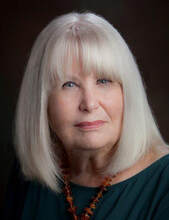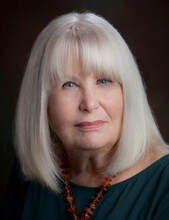Many friends want to know what’s happened to the free press in Russia that I was working so hard to establish as the USIA journalist-in-residence in Russia in 1995. For an up-to-date answer to that question, Monday I emailed one of the journalists I worked with that year. Here’s his response: “If you consume only Russian government media, and that is probably true for about 70 percent of Russians now, you wouldn’t even know there’s a war going on. It’s quite absurd watching this coverage. It’s like a parallel reality where you see a news piece about the Russian army liberating one Ukrainian town after another. They’re just making this up as they go. Not a single news story would mention that there was a war going on in Ukraine. “Not long ago I talked to a few editors at all these propaganda news networks, leading up to the invasion. Right now, all of them are so demoralized. They’re telling me that they’re absolutely devastated. Their souls are crushed.” And so many of them are simply leaving, as my friend has done. He’s now working as a journalist for the Meduza news website in Latvia. “I can’t go back to Russia until Putin is either not alive or not the head of the Kremlin. I love my country. I want to live there. I love Russia. I love my home. I love my parents. But I have to be realistic about this. “The day after I left, on March 4, the Russian parliament, in kind of an extraordinary session of both chambers, which rarely happens, passed a bill that effectively criminalized my work. It’s a law that punishes journalists for disseminating false information about the Russian military. The same day that we arrived in Latvia, we found out that our website was blocked for disseminating false information about the Russian special operation in Ukraine. It was obvious we were banned for calling the war a war. That’s not a word you’ll ever hear on the Russian government’s airwaves anywhere. “Reporting on the war is basically what I’m doing 24/7 now. We’re working six-day weeks and 14-15-hour days. This is our entire mission now.” Those thousands of Russians who marched in the streets of Moscow and St. Petersburg, chanting “No to war!” testify that Putin may have overplayed his hand this time. Those of you who have read my book, From Under the Russian Snow, which I discussed in this space three years ago, know that Anna Sharogradskaya is something of a hero to me. She directs the Regional Press Institute in St. Petersburg, where her efforts to instill the ethics of a free press to young journalists—despite the current conditions—have drawn the attention of the authorities. She’s been dragged into court time after time and officially declared a foreign agent, which means state auditors can come into her office any time and go through her laptop and trash her files without notice. On the day of the invasion, she spit in Putin’s eye with a screed against the war posted on Facebook. And now, at age 80, she’s in the eye of the hurricane once again. This morning she texted me that she’s just been informed that “the Russian authorities claim I do not have the legal right to leave the country. It appears I’m trapped.” Because I have so many friends in Russia, including three godchildren, I worry about how the rest of the world has begun to paint all Russians with the same broad brush. Nicholas Kristoff of the New York Times expressed my views in an opinion piece after Russian athletes were banned from Wimbledon and the Boston Marathon: “I understand the need to express revulsion at what Russia is doing. But I argue that we should be wary of treating every Russian citizen as the enemy, especially when so many Russians have been heroically risking arrest to protest the war. “I also worry that at a practical level, we should be peeling ordinary Russians away from Putin, and measures such as this simply lump all Russians together with Putin in a way that helps him.” And what of the Russians who lack the courage to speak out? They are huddled at home, convinced that they will pay a substantial price—in blood and treasure—for this war, for Putin’s folly. Michelle Carter is the former managing editor of the San Mateo Times. Throughout 1995, she travelled across the 11 time zones of the world’s largest country as the U.S. Information Agency’s Journalist-in-Residence in Russia. She is the author of two books, From Under the Russian Snow (Bedazzled Ink Publishers, 2017) and Children of Chernobyl: Raising Hope From the Ashes (Augsburg, 1993).
0 Comments
People keep asking me: Do you think the Russian people know what’s going on? Do they know that Putin has sent the Russian Army to invade Ukraine? They know. They may not know the full extent of Putin’s folly, but they know their country has become a pariah in the community of nations. They know that they are going to suffer in blood and treasure for this naked aggression that the Russian media is forbidden to call “war.” They know that Russian celebrities, opera singers and Bolshoi dancers have shouted, "No to war!" They know that Echo Moscow and TV Rain have disappeared from the air. They know when they hear from their brothers and sisters and cousins and grandparents in Ukraine, and they fear for them. They know that their sons thought they were heading west for training exercises and now they know they might come home in body bags or their ashes in plastic bags. They know that the ruble has lost half its value, and they know they can't get out of the country no matter how much they would like to. They know and they are very worried. They know even if they will never admit it and even berate those who will say it out loud. But they know. Those who grew up in the Soviet period learned at their mother’s knee how to know something they could never acknowledge to another soul. They knew you could get real meat at the shoe store in the alley two streets over when there was only pickled pigs feet in the neighborhood shop. They knew when a neighbor disappeared in the night. They knew when a colleague slipped “samizdat” (an unauthorized manuscript or censored document) into his bag. They knew but they could never show in any way that they knew. They had to “unknow” it — and they got very good at it. Today they’re “unknowing” this war. They have to. To acknowledge it would drive them mad. Michelle Carter is the former managing editor of the San Mateo Times. Throughout 1995, she travelled across the 11 time zones of the world’s largest country as the U.S. Information Agency’s Journalist-in-Residence in Russia. She is the author of two books, From Under the Russian Snow (Bedazzled Ink Publishers, 2017) and Children of Chernobyl: Raising Hope From the Ashes (Augsburg, 1993).
My local newspaper asked me to write an op/ed piece about the Ukrainian invasion and, to launch this conversation, I thought I would share it with you: Russian President Vladimir Putin has launched an invasion to pummel Russia’s sister republic Ukraine into submission. We are stunned at the depth of Putin’s naked aggression — but we shouldn’t be surprised. Putin was plucked from the shadows of the KGB to be president of Russia in 2000 when the Soviet Union wasn’t yet cold in its grave. Boris Yeltsin had presided over Russia’s first post-Soviet years as an open society and nascent democracy, but his hand-picked successor had other plans for the planet’s largest country. Early on, he described the fall of the Soviet Union as the 20th Century’s greatest geopolitical catastrophe. He whipped up a frenzy of hate around Mikhail Gorbachev for surrendering the political and military power of the USSR and boasted that he alone could restore Russia to the heights of power. Over the past two decades, he’s managed to whittle away at everything open and democratic that he inherited and to sculpt a repressive authoritarian Russia in the image of the Soviet Union. The resurrection would be nearly complete — except for the absence of the 14 other Soviet republics which became independent states when the USSR dissolved in 1991. Sovereign states, I might add, most of which don’t share Putin’s global vision of Russia restored to glory. So why are those missing republics such a headache to Putin? Take a close look at a map of the western edge of Russia. All those countries that climb from the Caucasus in the south to the Baltics in the north — Georgia, Ukraine, Belarus, Lithuania, Latvia and Estonia — served as a buffer between the USSR and the West (with a capital W). And it was from the West that the greatest political and military threats to Russia have come. In 1812, it was Napoleon Bonaparte, whose troops actually occupied the city of Moscow. In 1942, it was the Nazis who stormed onto Russian soil only to be stopped at Stalingrad, site of perhaps the bloodiest battle of the Great Patriotic War. (Putin recalled this moment of Soviet greatness in his invasion speech on Thursday, describing the leaders of Ukraine as “neo-Nazis.”) The West became the nemesis of every Soviet leader. At the end of World War II, the Iron Curtain cleaved the continent in two and extended the buffer to include the entire Soviet Bloc from Berlin east to Russia itself. Then Gorbachev let it all get away when he let the Berlin Wall fall without a fight. In two short years the USSR was gone as well. And what of those buffer republics that got away? Latvia, Lithuania and Estonia, the last to be forcibly absorbed into the Soviet Union, scrubbed themselves clean of all the Russification they had had to endure and rushed into the open arms of NATO, the West’s military alliance. Georgia walked a careful path between east and west and still got itself into a bloody encounter with Russia in 2008. Ukraine tapdanced between leaders who did Putin’s bidding and those who maintained a strategic distance, but it still suffered the indignity of Russia seizing Crimea eight years ago. The one outlier has been Belarus with its thug Alexander Lukashenko wielding a heavy hand in Europe’s last autocracy. Lukashenko is snug in bed with Putin, opening Belarus to Russian tanks and missiles for “military exercises.” At the moment, it seems pretty clear that Putin sees subjugating and swallowing Ukraine, the largest country in Europe, as his path to restoring Soviet glory and re-establishing his buffer to the West. Snatching the Crimea was just to test the waters, to see how much NATO and the U.S. cared. Apparently, not enough. But this time NATO and the U.S. have forged a remarkably tight coalition to punish Putin for the invasion of Ukraine, but that will offer little solace to the people of Ukraine — most of whom have family members in Russia — who will suffer to satisfy Putin’s taste for glory and grandeur. Those thousands of Russians marching and chanting “No to war!” in Moscow and St. Petersburg testify that Putin may have overplayed his hand this time. Millions more are huddled at home, worrying that they will pay a substantial price in blood and treasure for Putin’s folly. Michelle Carter is the former managing editor of the San Mateo Times. Throughout 1995, she travelled across the 11 time zones of the world’s largest country as the U.S. Information Agency’s Journalist-in-Residence in Russia. She is the author of two books, From Under the Russian Snow (Bedazzled Ink Publishers, 2017) and Children of Chernobyl: Raising Hope From the Ashes (Augsburg, 1993).
|
Bedazzled Ink AuthorsBlog posts from our authors. Archives
January 2023
Categories
All
|
Books & Imprints |
Information |
Contact |



 RSS Feed
RSS Feed